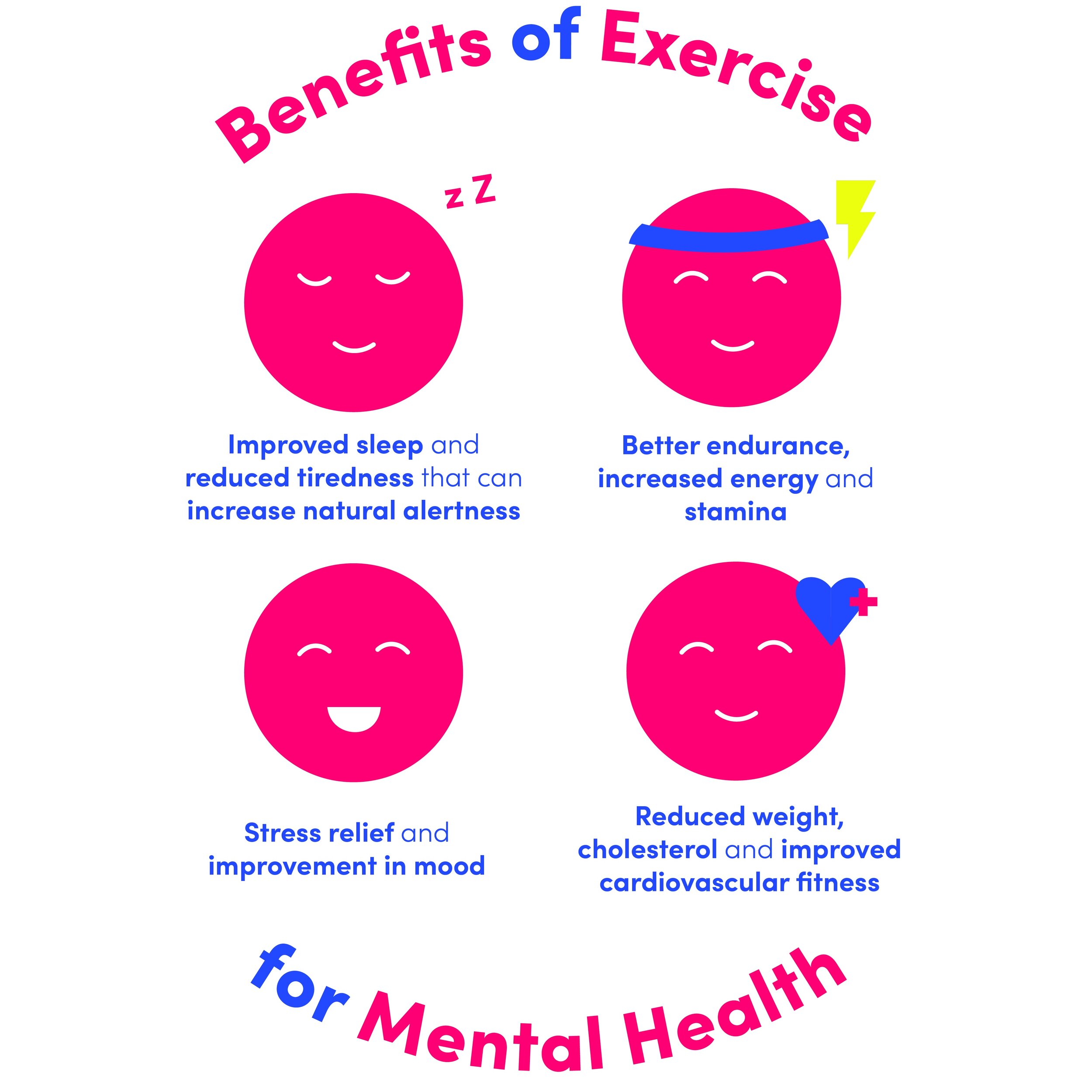Why exercise is great for your mental health - a physiotherapist explains…
Whether you’re a fitness fanatic or couch potato - we all know exercise is good for us.
Some are also aware of the benefits it holds for our mental health, but few fully understand exactly why physical wellbeing is so good for the mind, and how it can prevent burnout. Journify’s resident physiotherapist Emma Casey is on the case…
Let’s start with a quick breakdown of what exercise can do for our mental health:
Whilst that’s all great and everything, the real question is why is this the case?
The reason physical exercise boosts mental health is both physiological and social.
Physiologically speaking, when we work out, our bodies react to the positive stress which physical activity exerts. This triggers internal changes which actively benefit the mind:
Blood flow to the hormonal and emotional control centres in our brain increases. This has been proven to improve mood, decreasing the effects of stress and lowering the risk of depression and/or burnout.
Increased energy expenditure while exercising causes you to lose weight. Weight has been identified as a key variable in an individual’s self esteem. Reducing it, therefore, directly influences your sense of worth. Exercise can also counteract the effects of medications commonly prescribed for mental health conditions, which are known to cause notable weight gain.
Similarly, the social interaction associated with many forms of exercise has also been proven to positively impact the mind:
Many forms of physical exercise, such as football or hockey, take place in team environments. The social component of these activities offers a sense of community, regular encouragement and positive affirmation - all of which boost our mood. Such benefits are not restricted to traditional team sports: activities like running and gym classes when done in groups have the same positive effects.
Most competitive exercise also involves a measurable rate of progress over time. The ability to visualise and conceptualise our improvement has the potential to motivate and help us set goals. For many, setting and achieving personal goals is essential for sustained participation and long term self-esteem.
Understanding the mental health benefits of exercise is a great step to unlocking these advantages for yourself. However, this does not mean you should go out and run a marathon straight away!
Too much physically intense activity too soon could lead to injury, demotivation and a negative mindset towards exercise. Here are a few key tips on how to successfully and sustainability introduce yourself to a more active, mentally fulfilling lifestyle:
If you love it you’re more likely to stick with it - Don’t be afraid to shop around when looking for a form of exercise you’re super into. Really enjoying whatever sport or activity you participate in will keep you coming back.
Pace yourself! - If you are new to exercise, you are significantly more likely to avoid injury and disappointment if you are kind to yourself. Acknowledge your limitations, realistically align the intensity of activity with your current ability - trust me, you’ll thank yourself in the long run.
Set your own goals - Whether it be stress relief, fitness improvement, completing that park run or making the local club team, your exercise goals are personal to you. Clearly identify what motivates your physical activity and use that impetus to keep up the good work!
Understanding the benefits of exercise and making them work for you is a realistic, achievable and sustainable way of improving your mental health and preventing burnout. To help you on this journey here are some great resources to get you started:
About the author:
Emma Casey is a newly qualified physiotherapist and postgraduate student of Public Health and Health Development, based in London, UK. When not cooking or eating, she can be found with her trail shoes on, training for cross-country and long distance running races. After all that running and eating, she likes to relax watching Netflix’s newest true crime documentary!






